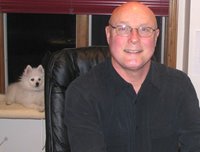THE REPUBLICAN MONOCULTURE
I watched as the television cameras scanned the faces at the Democratic National Convention. I saw men and women, old and young, African American, Latino, and Asian. I checked out the convention demographics:
White: 56.7%; African American: 24.5%; Latino: 11.8%; Men: 50%; Women: 50%
I watched the Republican National Convention. I saw mostly middle-aged white men. Their demographics:
White: 93%; African American: 2%; Latino: 5%; Men: 68%; Women: 32%
The U.S. statistics are: White: 74%; African American: 13.4%; Latino: 14.8%
The Republican Party is a monoculture.
Steven Nachmanovitch in his book, Free Play: Improvisation in Life and Art:
The conformity that is taught by the big school that surrounds us resembles what biologists call monoculture. If you walk in a wild field you see dozens of different species of grasses, mosses and other turf in each square yard, as well as a rich supply of tiny animals. This is nature’s insurance that changes in climate and environment will be matched by requisite variety in the plant life. But if you walk in a domesticated field you will see only one or a few species. Domesticated animals and plants are genetically uniform because they are bred for a purpose. Diversity and flexibility are bred out in exchange for maximizing certain variables that suit our purpose. But if conditions change, the species is locked into a narrow range of variety. Monoculture leads invariably to a loss of options, which leads to instability.
A metaphorical monoculture in society or a political party is a group where everyone looks alike and sees, does, wears, reads, watches, and thinks the same thing. The Republican Party composed primarily of white men cannot sustain itself as a vibrant system in a society that will be 54% minority by 2050.
Conservative New York Times columnist David Brooks provided an example of the Republican monoculture in action. Referencing the failure to pass the “recovery bill” on September 29, 2008, he wrote: “House Republicans led the way and will get most of the blame. It has been interesting to watch them on their single-minded mission to destroy the Republican Party. Not long ago, they led an anti-immigration crusade that drove away Hispanic support. Then, too, they listened to the loudest and angriest voices in their party, oblivious to the complicated anxieties that lurk in most American minds.”
John McCain tries to frame Barack Obama as an outsider, not really American in his values, not one of us: urban, subversive and even unpatriotic.
Obama’s story is the quintessential American dream in our rapidly approaching country of minorities: Born of an immigrant black father and a Kansas white woman, raised by a single mother and white working class grandparents, this bi-racial man rose to great heights on his merits and courage alone. His story is the best of America, and he reflects America’s near-term future: a nation that grows more racially and ethnically diverse daily.
Obama is like ‘the rest of us.” He just isn’t like the Republican Party. Obama represents the future of America--if not this election, then soon.
Republicans would be wise to understand this American future before they try to govern again. Instead of running fearfully to a romanticized past (Sarah Palin and white small-town America), they should move boldly to the future and embrace America’s diversity. Along the way, they must, as Brooks wrote, “…project a conservatism that emphasizes society as well as individuals, security as well as freedom, a social revival and not just an economic one and the community as opposed to the state.”
Republicans need to reinvent themselves for the future—not artificially as McCain is trying to do to win an election but for real.

